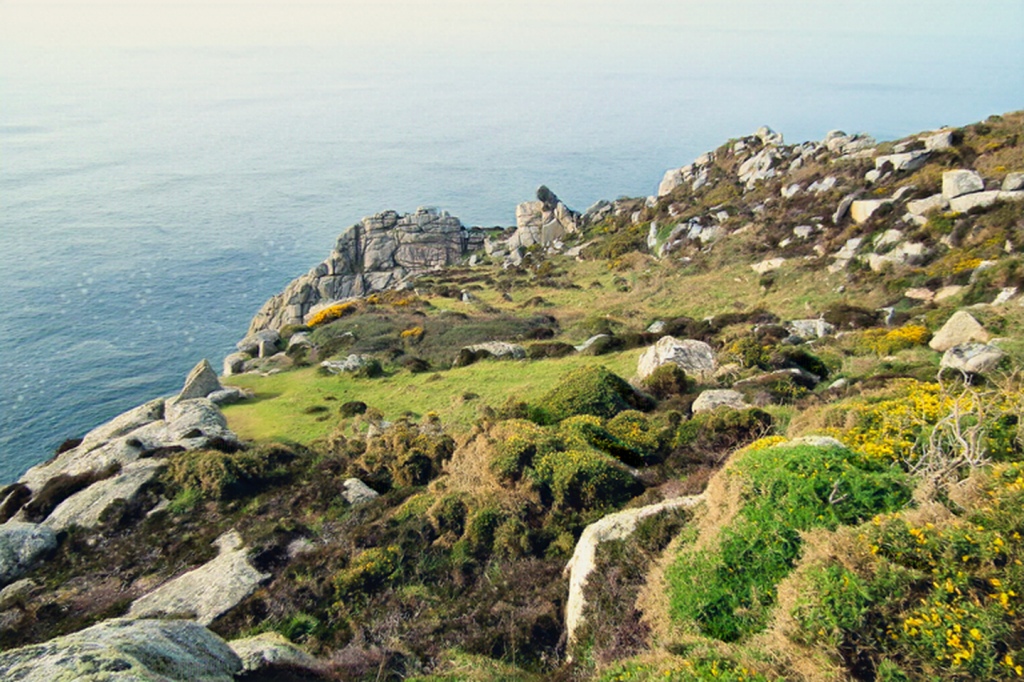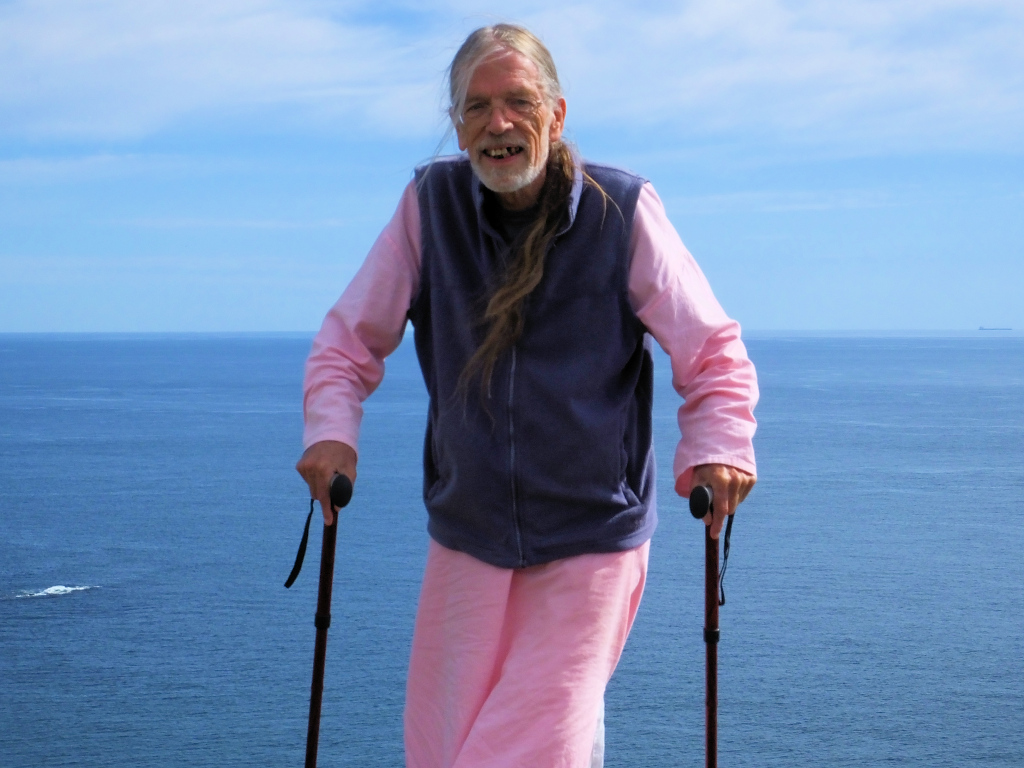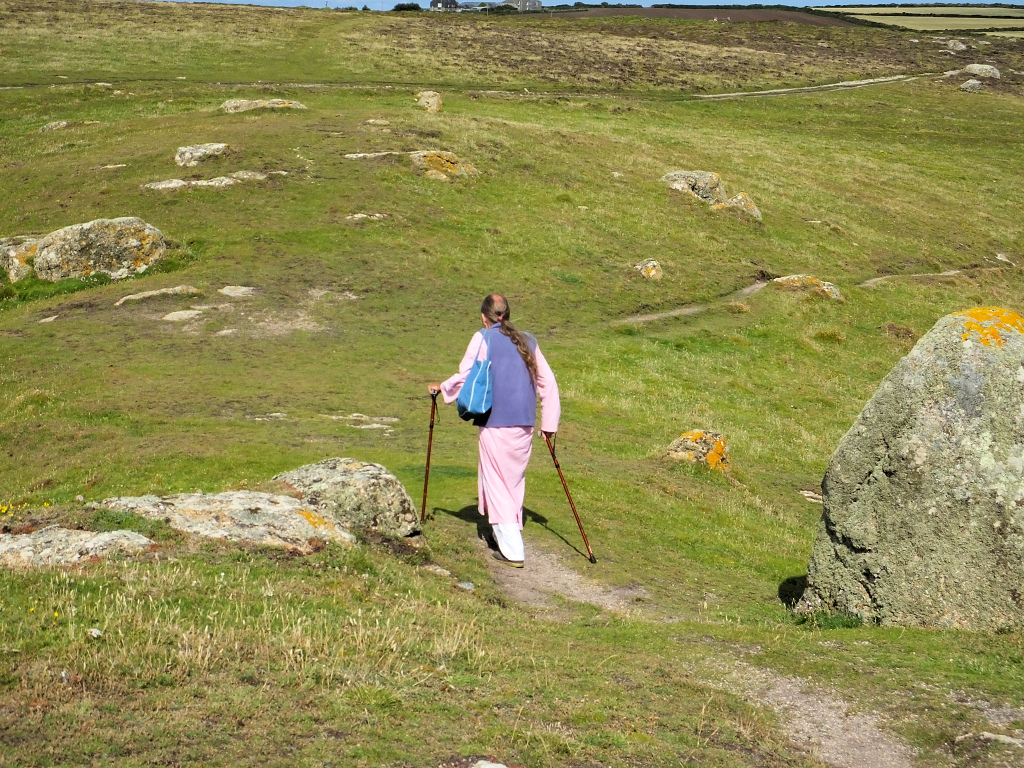
So what happens next? This question hovers around me now. It’s not unique to me: even though I’m spending most of my time alone and rather disconnected from society, the whole world is in a similar state and I’m very tuned into it. But the fascinating thing about living with cancer, at least in my case, is that, while death is a prospect facing all of us and it can come at any moment, it comes closer when you have cancer. So, in the last two months or so, I’ve been wondering whether I’ll get to the end of 2022 or whether I have longer.
This was prompted by a new health crisis that started in late October, prompted not by the cancer itself but by its side-effects and the vulnerabilities it and cancer treatments create. In November and December, at times I felt I was losing strength and spirit, deeply worn out. My spirits hold up well if I’m feeling reasonably clear inside, but if my psyche is befogged by illness I labour through a tiredness of spirit that makes me wonder how much longer I can carry on. It was becoming a question of whether to fight for life or hand myself over.
Well, I’ll be wherever is best and wherever I’m most needed. The time and manner of our passing is not in our gift to control. Even so, many of the more awakened souls I know who are currently leaving Earth seem mostly not to have a long illness and a slow decline – their angels pull them out with a quick heart attack or an accident, or they die in their sleep or their armchair and, whoosh, they’re gone.
I’ve had a number of near-death experiences and I know that, when I ‘let go and let God‘, I have, thus far, quite quickly bounced back. It’s not a genuine let-go to do this in order to bounce back, because that’s all about setting conditions, and that doesn’t work with death. The releasing needs to be wholehearted and complete. You just gotta be willing to pass through that door. This permits something else to take over. It takes things deeper onto a soul or a ‘causal’ level, which then can then override the rules and norms of body and psyche, and decisions are made that lie far beyond what we humans are aware of. But, us humans, we struggle for control. We’re addicted to life and, in the modern West, we’ve even persuaded ourselves that being alive in a body is the only reality there is – so we have a bias against dying.
The problem with this is, it’s not like that. And we miss a trick. There’s more to life than this.

The releasing I went through in late December was in no way dramatic or quick. I just got fed up with holding myself up and keeping going. So I stopped worrying about it and got on with life as it then was – feeling like a 95-year old crock on his last legs. Yet gradually, things picked up and, in early January, I began to see glimmers of a future. Hope tends to keep me going, and somehow my hope had faded. But here, amongst the ashes, something was germinating. Not a roadmap or a sense of how long I have left, but more a sense that there’s something more to do before I go. There’s reason to carry on. As far as I can tell.
It’s funny how the world magically responds to an inner change like this. In the preceding months, Lynne and I had not been able to see each other much – me, because of my immobility and state of ongoing lockdown, and she because of overwork and life-struggles, followed by two months wiped out with Longcovid. She really went through it, last year. By November, both of us were flat out in bed with fatigue and illness, a hundred miles apart. Messaging and phone contact got difficult. But eventually she started reviving and her reappearance was a bit like what it must be like for my eldest daughter Maya and her family, who live north of the polar circle in Swedish Lappland, when the sun first comes up in mid-January after a month or so of darkness. Suddenly life lit up and started looking very different.

That wasn’t all. Maya contacted me to say she was coming over from Sweden – we haven’t seen each other for about six years. Despite Covid restrictions and plane cancellations, and with the help of Tulki, my son, who ferreted out solutions, met her at Heathrow and brought her down here, she came to visit. Wierdly, here in cold, midwinter Britain, the temperature was 20-30 degrees warmer than in Lappland, and on one day we even had sunshine!
On that day we did a clifftop walk from Porthgwarra to Carn Lês Boel, a dramatic headland looking out over the Atlantic, and my favourite pilgrimage place in West Penwith. It’s where, in spirit at least, I’ll probably dance my last dance. I had anticipations about getting back from the Carn to Porthgwarra, nearly two miles, but my spirits were up and antigravity drives were humming, and my legs and sticks teleported me back. Plus the old mountaineer’s trick of avoiding thinking about how far there is yet to go. And the company.
Maya, Tulki and I had some close and meaningful sharings, huddled around the stove while it rained and blew dismally outside. It lifted up my heart, and I think and hope it was the same for them too. Though I have brought together hundreds of people into groups, communities and tribes, I’ve never done well with family and often I’ve been judged as the one at fault in relationships, so this was a healing on a very deep level – or the beginning of one. It felt ancestral as well: I grew up in a dysfunctional nuclear family that was an offshoot of a wider family that had become alienated and atomised in the earlier 20th Century, and it felt to me like this was a cross-generational turning of the tide, a healing of ancestral hurts. Maya’s and Tulki’s generation feel to me as if they’ll bring family back together in a new way.
It’s a new kind of family too: my four grown up ‘children’ are born of three different mothers. In case you think I’m some sort of toxic pervert male, two of those mothers had also had children by multiple fathers, and Lynne has four ‘kids’ by three fathers! So either they are toxic property too, or there’s something new and different going on here. Something transformative and tribal. They and their peers are the founders of the new families, communities and clans that will constitute an answer for the future. As I often say, we’ll only get the the other end of the 21st Century by working together – something my generation made some progress with, but changing the course of human history takes more time than we’d like.

I mention these two events because, late in 2021, I felt there was nothing much to hope for or look forward to. I was feeling leaden, redundant and uncreative – hence that it has been a month since my last blog. Surreptitiously, things changed. Also, I realised that there’s one more writing project to do, which partially I dread (since I’ve sat at so many typewriters and computers for so long that it’s no thrill at all), and partially it gives me a feeling of relief and release, to think of finally getting it out. The added bit is that, at the end of life, I don’t care too much about what others will think – it’s quite liberating for a long-distance author, that. Whether I’ll manage to actually do it, I do not know. I need to write down a good smattering of my inner experiences and extraterrestrial contacts – a story I haven’t told. For the record. And, well, it’s not the first time I’ve broken a cultural taboo or been shat upon for doing it.
As a Virgo I’m rather attached to making a contribution and being useful. Being on Earth hasn’t been a great pleasure, even though I’ve had loads of amazing experiences. It has been a bit like a duty and a mission, a bit like holding your breath underwater while trying to get to the other end of the pool – and it’s further than you thought. So I’ve always had a feeling that, to justify continuing, I must contribute something, to make it worth it. Lots of people have given me lectures about getting over this pathology and about being more realistic and responsible. But from another viewpoint, though such a view conforms to the comfortable groupthink-consensus of our majoritarian society, that’s rather a complacent position. We’re all getting on with our own lives while the world is going down. In the end it’s the reason why we have dictators, hunger, injustice and environmental destruction – we allow it. We’re too busy to worry about it. For some reason, throughout life I’ve felt a strange need to do something about this, driven by Edmund Burke’s enduring statement: for the triumph of evil it is necessary only that good people do nothing. This presents dilemmas that hit anyone with a conscience.
Six months ago I learned that one factor affecting many or even all cancer patients is that we have spent our lives tuned in to the needs and emotions of others. Cancer comes to pull us back to ourselves. This is true: I’ve had to draw new boundaries and look after myself like never before. But the funny thing is, my soul is still oriented toward service, even as a crippled old cancer-freak. Problem is, this service has benefited others but not my close family. My mother was like this too: at her funeral she was much loved and honoured for all she had done in public, but for me and my brother, while she did her best in a 1940s-50s way, she wasn’t a good mother. If I was hungry she would tell me to go away and play because it wasn’t teatime yet. Thanks. Looking back, I wonder whether she, like me, had Asperger’s Syndrome, with its attendant relationship issues. She channelled her feelings and love into public service, and so do I. To the cost of some and the benefit of others.
Lynne is admirable in this regard. She just about manages to bridge the contradictions here. I’m a very loving man, and I do try, but I don’t and can’t do many of the things in relationship that most ‘neurotypical’ people apparently do. I don’t see and judge life in the same way. I’m programmed up differently, very much in my own bubble-world, and while I’m locked away on a remote farm having cancer treatment, she’s out there in the world, doing battle with its swirling challenges and very much experiencing the ‘too busy’ syndrome that so much plagues our society. As a counsellor and life-wisdom teacher she needs to maintain inner clarity, but mortgage-paying and modernity’s complex pressures pull the other way, and this is a struggle even for the best of souls.
That’s where I was at two decades ago and, bizarrely, as a pensioner and cancer patient, for the first time I have a consistent though modest income, and am more or less released from all that grind. Well, sort of – I’m doing a different kind of grind instead. So Lynne and I have to bridge that wide gap at present, and she also has to deal with the weird Aspie in me, and the possibility that I might pop my clogs any day, and she deserves a medal for all that. All I can give her is delightful chocolate-and rose flavoured tea lovingly brewed in springwater from up the hill – well, I have some pleasant quirks.
Lynne and Maya have made me aware how, through relationships and family, I have unconsciously tried to bridge a gaping chasm between two parts of myself – the mad-professor hermit and the former philosopher-king with no kingdom. I have not succeeded. The only consolation is that there have been benefits in other ways. Nelson Mandela had this problem: a conflict between his allegiance to his family and to his people that he never quite resolved. But in the end it was better for everyone that he did what he did, and perhaps he was supporting his great-grandchildren better than his own children. And life takes many strange turns.
I don’t know how long I shall live. Every estimate of how I shall be tomorrow, in a month’s time or next year is provisional and guesswork. Should I buy a new winter coat or put the money into financing my funeral? Well, there’s only one answer: live day to day, do my best and find out. And be grateful for small things.

The big event yesterday was a hobble down the old trackway into the valley, turning right into the field, balancing my way through a muddy, tractor-ripped gateway and down to where Paget, Andrew and Jon were digging out the old pool by the woods in the low afternoon sun. This will create a revived habitat for pond and stream plants, geese and waders, dragonflies and allsorts. It was great to see, even if at this stage it’s mainly mud and unfinished fencing to keep the cattle out. But then, it’s January, and the right time for it. Capricorn: a time for carrying on regardless and getting on with the digging. And the tax returns. And the daily grind. But underneath, hidden away, something is moving, taking shape.
The corvids are massing and krarking around in the clear, cold sky above the farm, ready for bedding down in the trees down below. They’ve been out and about around Penwith and they gather together to sleep in the woods. The geese will come in soon, settling on the lake shores down the valley. I think it’s time to finish this blog and post it. Time to light the stove and get some dinner on. Thank you to Teri in Australia for prompting me to write this. And bless you all for being you.
Love, Paldywan Kenobi.
Down’ere in Cornwall, right at the far end
www.palden.co.uk
























 Yesterday, at Carn Les Boel, I was glowing. I love looking out over the ocean, and the spirit-beings on the carn are ancient and benign, like old friends, holding me in their upstretched hands. My soul grows and I get stronger in spirit, and this lies at the core of this process. I asked for healing and wholing and offered up my life, to be where I’m most needed and to do what best I can do. I listened to the linguistics of the waves, visited infinity and felt my way round the world, blessing people I know and people I don’t. It was a holy day, and certainly a good change from the rather quiet, shut-in life I’ve been living recently. And God bless Lynne for making this pilgrimage with me – and it’s her pilgrimage too.
Yesterday, at Carn Les Boel, I was glowing. I love looking out over the ocean, and the spirit-beings on the carn are ancient and benign, like old friends, holding me in their upstretched hands. My soul grows and I get stronger in spirit, and this lies at the core of this process. I asked for healing and wholing and offered up my life, to be where I’m most needed and to do what best I can do. I listened to the linguistics of the waves, visited infinity and felt my way round the world, blessing people I know and people I don’t. It was a holy day, and certainly a good change from the rather quiet, shut-in life I’ve been living recently. And God bless Lynne for making this pilgrimage with me – and it’s her pilgrimage too. I’d love to go to Mali to visit Tinzibitane, the Tuareg village I’ve worked with since 2014. Talking of which, I’m going to try to organise a whip-round to support them soon, so please consider scraping together what you can. In general, the village has been doing well, but Covid has drained their finances. They want to do more to sell their crafts abroad, since tourism in Mali has collapsed. They’re perhaps 70% self-sufficient but when they interact with the wider world they need money. They now have no capital to invest in materials, so I want to try to help them get capitalised so that they can start work on this. More about this soon.
I’d love to go to Mali to visit Tinzibitane, the Tuareg village I’ve worked with since 2014. Talking of which, I’m going to try to organise a whip-round to support them soon, so please consider scraping together what you can. In general, the village has been doing well, but Covid has drained their finances. They want to do more to sell their crafts abroad, since tourism in Mali has collapsed. They’re perhaps 70% self-sufficient but when they interact with the wider world they need money. They now have no capital to invest in materials, so I want to try to help them get capitalised so that they can start work on this. More about this soon.

You must be logged in to post a comment.